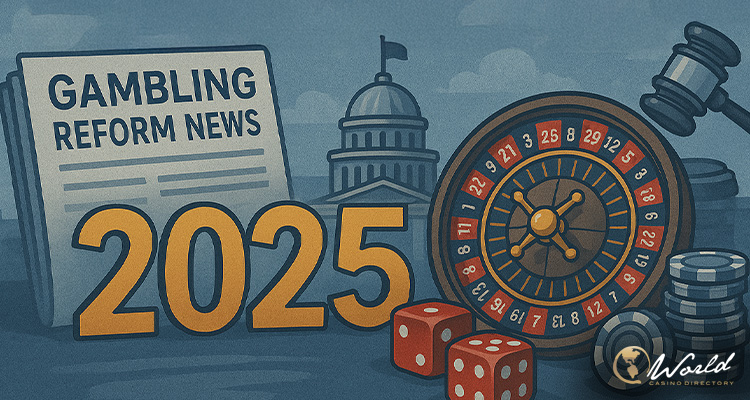So far, 2025 has been a dynamic year – and this includes some tectonic changes to global gambling laws. Governments are beginning to get a hold on the fast-growing digital platforms and their socio-economic impact.
In 2024, Americans wagered over $148 billion on sports. This is a new, all-time record! And the rest of the world isn’t lagging too far behind. These numbers tell us plenty about how and to what extent people are interacting with gambling platforms.
With numbers like these, the world demands a response from legislators and regulators. This is why we are bringing this breakdown of gambling law changes in this year and beyond.
The United Kingdom’s player safeguards
The UK has recognized that its main responsibility is toward player safety. This is why their most debated reform of consolidating the policies on Remote Betting Duty and Remote Gaming Duty has seen the light of day. With bigger financial regulation comes the downfall of tradition, and the horse racing sector could be taking the hit as a result.
The UK Gambling Commission has taken a bold step to protect players from addictive behaviors. They reduced the financial risk threshold that triggers affordability checks, now down to £150 per month from £500. Also, operators are now required to obtain explicit user consent before sending out promotional messages. It’s a notable attempt, which could serve as a role model for countries and areas known for problem gambling behavior.
Canada’s free market with clear rules
Canada is expanding and refining its iGaming market. Ontario has become a model of regulated online gambling. By hosting platforms such as ComeOn casino, players have access to a wide range of slots and table games in a safe environment. All the platforms that want to do business here have to implement responsible gaming measures.
This approach exemplifies a modern shift in gambling reform. The aim is to allow access to quality betting experiences while keeping users safe. Other nations are eyeing this framework as a blueprint for sustainable industry growth.
The United States’ legal battles
US gambling law struggles to keep pace with a fast-evolving digital landscape. Several states are now introducing stricter caps on advertising and user spending. Lawsuits in Baltimore and New York are challenging the legality of promotions, with major platforms like DraftKings and FanDuel being accused of exploiting legal gray areas.
Prediction markets and sweepstakes-based platforms are under scrutiny too. Major news here is Kalshi winning lawsuits against regulators and redefining what is (and isn’t) legal in online wagering.
Croatia’s law overhaul
Croatia is fighting its growing addiction problems. The country’s new gambling law is set to be enforced in January 2026, aiming to bring structure to what is currently a loosely governed space. And it’s the one that could serve as a prime example of how to fight the growing addiction problem.
Several key aspects stand out here:
- A mandatory national player registry.
- A self-exclusion platform shared by all licensed operators.
- Bans on self-service betting kiosks in non-gambling venues.
And tax rates will become progressive. Simply put, any larger winnings you make are going to be taxed at higher brackets. Annual licensing fees are set to fight the growing number of operators, and 11% of gambling operators’ income will be used to fund addiction programs.
These changes could reduce the number of gambling venues by 10-15%, while generating an estimated €50–70 million in new tax revenue.
Brazil’s putting the brakes on a booming market
Brazil’s market reached new heights in 2024, as 25 million new users entered the scene in just seven months. Yet this surge has exposed a dangerous lack of regulation.
In response, Brazil enacted a comprehensive law in early 2025 to:
- License all operators formally.
- Introduce taxes on gambling winnings.
- Ban credit cards and certain payment methods.
- Penalize unlicensed platforms.
The goal is twofold. The law needs to protect consumers and bring a vast gray market into the legal arena. The government expects these reforms to generate significant tax revenue.
Africa’s regional shifts
Africa presents a patchwork of evolving policies, whereby several countries are now revamping their gambling laws.
- Nigeria introduced a 5% tax on winnings and a 15% non-resident tax.
- Kenya raised the excise tax on betting stakes from 12.5% to 15%.
- Morocco enforced a 30% tax on foreign gambling wins.
- Zimbabwe rolled out a 10% tax on gross sports betting winnings.
These changes reflect a growing awareness across the continent of the fiscal potential of online gambling.
New legal questions
No other factor has had such an influence on regulators as technology has. The increased use of cryptocurrencies in online casinos has sparked anti-money laundering concerns. This has caused some countries to demand the use of regulated stablecoins and smart contract audits before licensing a platform.
This trend toward decentralized gambling has prompted conversations around the so-called regulation through code. Now, compliance is enforced through automated smart contracts, which diminishes the need for human inspectors. This actually promotes even higher legality, since no one gets to pass on “pretty looks”.
Yes, the global gambling industry is undergoing rapid transformation. 2025 has so far been the year proving that reforms require more proactivity. And you, as a user, should stay informed about these changes – especially as jurisdictions increasingly expect everyone to comply with tighter, smarter rules.
Those who adapt early will be the ones who stay ahead.


